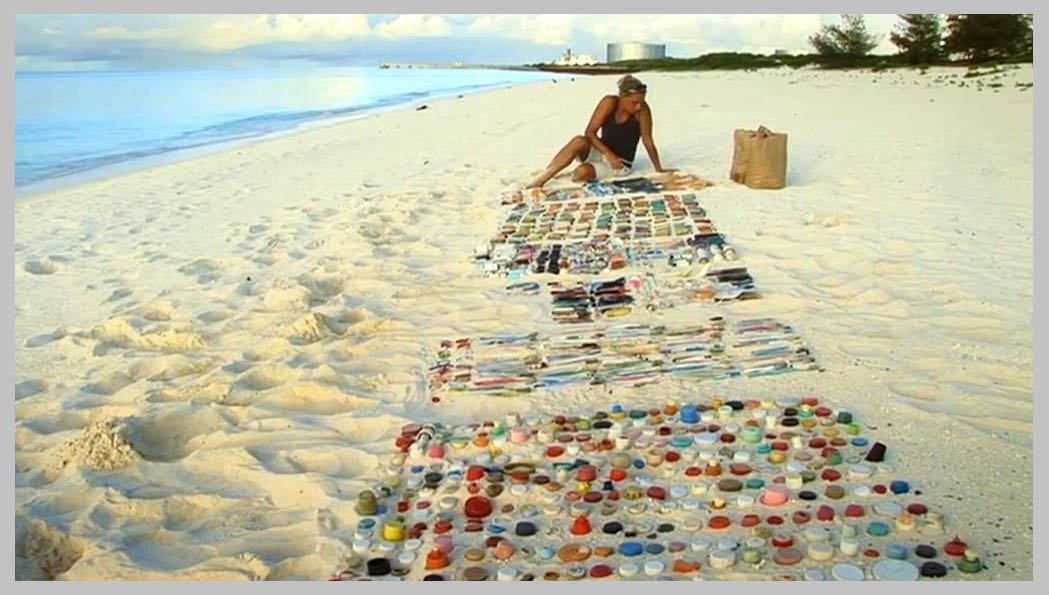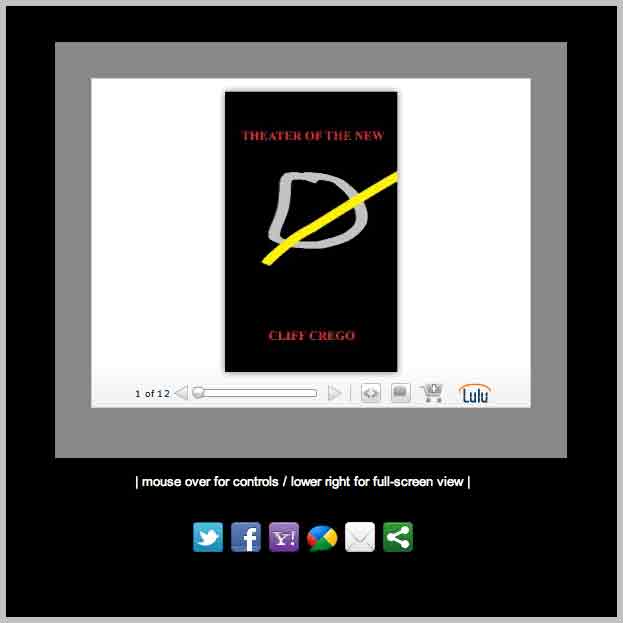POLLUTION, WHOLENESS &
THE PLASTIC BAG
—for Thorny & Dorothy, my friends
at the Eagle Valley Hitchin’ Post
In a way, it is possible to say that the pollution of the Earth,
especially at the extraordinary and massive scale at which it is
now taking place, is only possible because of a radical
fragmentation of our thought and perception.
It’s interesting that pollution is never an end in itself. In other
words, pollution is not something we do deliberately, but is
rather almost entirely a result of the unwanted side-effects of
everyday actions and habits. Because pollution is not an end in
itself, or goal, it is therefore very easy to, as the apt figure of
speech has it, “put out of mind.” In other words, we focus with
laser-like precision on some goal, like making a computer, or
powering a car, while ignoring the pollution factor or the ratio
of kilograms of toxic waste which results from each kilo of
product produced. Again, my contention is that this denial of
such highly relevant facts is only possible with an equally highly
fragmented manner of perception.
From the philosophical point of view, what’s interesting about
pollution, is that it does not simply go away because we for
whatever reason avoid thinking about it. In fact, this is precisely
why pollution is so revealing: it is because of the very wholeness
of the natural systems of the Earth that pollution—like it or
not—comes round as a kind of highly unflattering mirror of our
own fragmented styles of thinking.
There is logical beauty in this because we have before us a clear
reflection of where we have gone wrong. Pollution is telling us
in its own way where mistakes in design need to be corrected.
And as part of the natural system ourselves, this is indeed what
we would do—that is, correct our mistakes—as long as there is
nothing blocking us from doing so.
This is easy to test for yourself.
Consider this: it is a fact that plastic shopping bags are wrecking
havoc with the water cycles of the world. For example, the
area that has become known as The Great Pacific Garbage
Patch, a vast surface whirlpool of plastic-based trash between
the west coast of the United States and Hawaii and now covering
an area the size of Texas, is full of these ubiquitous white
items of convenience. Ugly, yes. Harmful, doubtless, I think all
would agree. I would also argue that it is unethical, unethical
in the most direct, straightforward way because the facts show
clearly a failure to take into account the harmful wider-context
consequences of our actions. This is especially so because white
shopping bags are in no way necessities; they are merely a habit
of convenience and could easily be replaced. Here, it would
also be reasonable to suggest that, like all activities that are by
consensus found to be harmful to the common good, the bags
should naturally be prohibited, as is already the case in many
places from China to San Francisco.
The sport of philosophers is to watch meaning change. Just as
rooftops without gardens or banks of solar panels are beginning
to look like a great opportunity lost, and vehicles which
still have exhaust pipes are morphing into ill-designed instruments
of mindless waste, artifacts like white plastic bags have
for many already shifted in meaning from the once stalwart icon
of clean consumer convenience to the needless foul filth of the
world. All because of an idea, a new way of seeing, that happens
to be true.
* According to Charles Moore, the discoverer of The Great Pacific Garbage
Patch, “Plastics, like diamonds, are forever.” On average, each person on the
planet throws away 50 kilos of plastic a year; And amazingly, about half a
trillion [sic] plastic bags are produced each year.]




